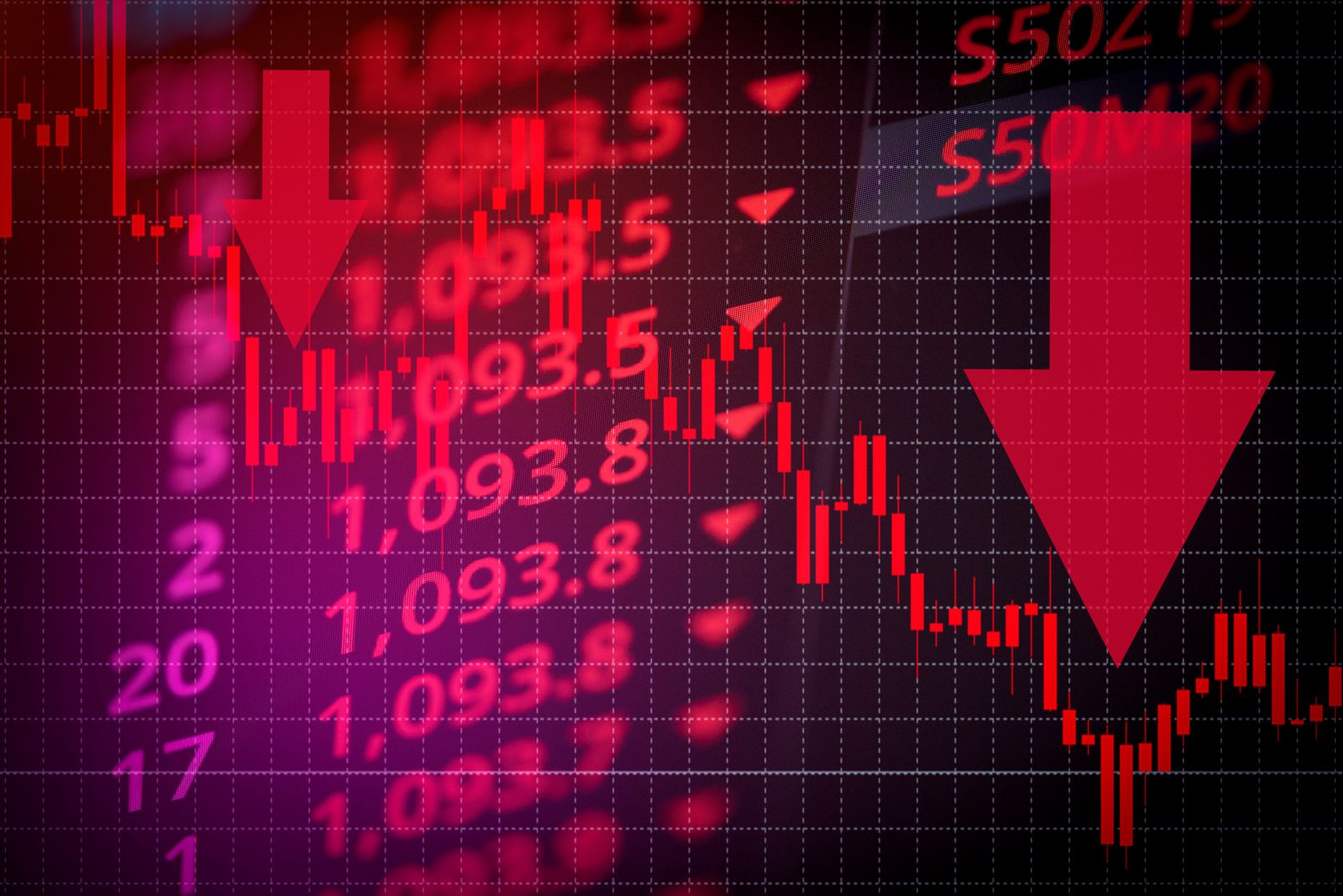
Peter Lynch was once quoted as saying, "In the stock market, the most important organ is the stomach. It's not the brain." Lynch believed that the ability to manage one's emotions and stay the course, even during tumultuous times, was a more valuable commodity in the world of investing than mere analytical ability or intelligence. Regular readers will know I strongly agree with him. I look to controlling emotion first in most stressful situations, not least investing. We will dissect this a little later, but let’s look at the facts.
Things Are Looking Really Bad
Being pessimistic is now acceptable. The stock market faces rising interest rates, geopolitical tensions, a possible recession, and soaring inflation. Rising interest rates make it more expensive for firms to borrow money, which might hinder earnings growth. Geopolitical tensions like the Middle East war are causing global economic instability, making investors risk-averse and thus selling stocks. Corporate earnings and stock prices might plummet in a possible recession and high inflation would reduce business earnings and consumer expenditure. How bad can things get? Wait one second.
The World Revolves In Cycles
There are endless loops in nature. Many of various sizes. They are wherever we look. Business and economics, astronomy and physics, biology, chemistry, etc. There are cyclical patterns in the stock market as well. I've seen throughout the years that the stock market cycle is unique in that there is a great deal of emotion involved. Consider the preceding illustration. When the economy was at its worst in 1992, how did you feel? How did you feel sitting on dot-com losses in 2002? How did you feel when the real estate market crashed in 2007?. When you were at the peak of one of these cycles, just before it collapsed, how did you feel? You must admit, you are probably confident. Keep in mind that the descent is always the worst part. People have what is called a "pessimistic bias," or an inclination to overestimate the probability of unfavorable outcomes while underestimating those of happy ones. The result can be a severely pessimistic attitude toward life. Our propensity to consider the worst-case scenario may have an impact on our decision-making and willingness to take risks. The same reasoning applies to the idea that "bad news sells." Furthermore, it has been demonstrated that spending time with pessimists can lead to severe depression because of the pessimistic outlook they promote. Most traders and investors make mistakes because they either don't realize that markets are cyclical or don't expect the present market phase to terminate.
Patience, My Friend, And Be Ready
Use market and stock cycles to time entry. Patience and waiting for the proper time can save you money and stress. Past financial crises generally end in big failure. LTCM (1998), WorldCom (2002), and Lehman (2008) Watch for these developments, as they may indicate a bottom. So, identify where we are, and while I hate failure, certain institutions will dramatically fail, which may signify a bottom. Stock market cycles usually predict economic cycles by 6–12 months. Economic growth and market decline are familiar cycles. The recurrent ebb and flow often catch our emotions. You've identified our cycle stage. Select your stocks next. Prepare a watch list. Google, Yahoo, or commercial alert services can do this. Determine what you want to buy, at what level and worth, and how much risk dictates what you will fill your boots with. Preparation is half the battle. We are the world's best investors, retrospectively. Emotion will beat you here, unfortunately. I've made excellent purchases when the perception of the world is at a stage where it believes it’s about to collapse. It never has, but your emotions will make you believe it and you will miss the chance.
Where You Should Be Looking
Look for under-covered names the market has rejected. Top-of-market IPOs, fresh secondary listings, split-offs, carveouts, spinoffs, and orphan securities are examples. Research analysts may ignore stocks with low price-earnings ratios. Find companies that announced strategic changes. In its misery, the market will sell indiscriminately as you buy more safely. Search for darling stocks that tiny investors and the media love at the top. When there is panic and blood on the streets, these names are sold first, as most people sell their last things and companies with a short trading history.
Three Ways To Control Your Temperament
- Market volatility is a given. Stock prices can fluctuate wildly, often for no discernible reason. A calm investor can ride out the ups and downs of the market and maintain their long-term investment strategy. You must remain mentally tough.
- Those who invest should avoid making hasty judgments based on short-term market fluctuations, as this might lead them to sell at the bottom out of fear or buy at the peak out of greed. Such actions often have subpar results over the long term.
- Knowledge and study go a long way in the world of investing, but even the most astute investors can go bankrupt if they don't have the correct temperament. An overreaction to market news, trends, and short-term events could ruin a well-researched investment.
Finally, remember, in times of excessive optimism or pessimism, investors often assume new paradigms have evolved and old rules no longer apply. They may overvalue assets during bubbles or panic during downturns due to this mindset. Templeton believes that investing fundamentals are usually consistent, and those who ignore history make mistakes. Don’t become caught up in the moment's exhilaration or sadness and stick to the significance of investing based on long-term principles and history.
This time. It’s not different…
More Stock Market News from Barchart
- Earnings, Geopolitics and Other Key Items to Watch This Week
- Defense Stocks Like Lockheed Martin Have Jumped - Is It Too Late to Get In?
- 3 Buy-Rated Stocks That Pay Monthly Dividends
- Taking Advantage of the High-Interest Rate Environment







